Incurable
A Review of “A Little Life,” by Hanya Yanagihara
January 10, 2023
Scarlett
A Little Life follows the perspectives of four boys throughout their college, adult, and elderly years. Their highly polar lifestyles allow for much diversity and individuality to be explored within the book. Apart from a few exceptions, their lives don’t necessarily overlap all that much either, allowing you to learn about the four interesting and unique characters separately. Readers are therefore faced with quadruple the suffering, since each of these boys face specific issues that make the plot that much more enthralling. While they are four friends, Willem and Jude’s storylines take priority over Malcolm and JB’s, likely because Jude continues to relive trauma after trauma while Willem is generally right by his side throughout.
One of the most interesting aspects of A Little Life is the incorporation of axioms. Axioms (propositions that are inherently true and irrefutable) are generally used as mathematical terms that you most likely won’t learn until college, or maybe not at all. However, this book’s interpretation of different axioms, specifically the axiom of 0 (a state of nothingness must exist, 0) and the axiom of equality (x must equal x), has put math, as well as life, into perspective.
Our lives are intertwined with numbers and equations: you can think of a person as someone with a soul and spirit, but also as someone with 206 bones, 4 limbs, 2 ears, 1 mouth, etc. There is no escaping the fact that consequently everything can be reduced to a number, which is both frightening but also somewhat of an anchor.
Hanya Yanagihara accurately captures this when she says, “It was the kind of axiom that could drive you mad, that could consume you, that could easily become an entire life. But now he knows for certain how true the axiom is, because he himself––his very life––has proven it. The person I was will always be the person I am, he realizes.” Here the author is describing the axiom of equality when translated to the real world. Knowing that you can never be anyone but yourself forces you to accept everything as it is, for it is impossible to change what is fundamentally “you.”
Additionally, when Yanagihara mentions the axiom of equality, she defines the axiom in a way that broadens the reach of her writing, not just to the characters she has created but also to those actively reading. This can also come off as a fault of hers, since Yanagihara’s conceptualization is apophenic. For something to be apophenic is similar to the placebo effect, where people find meaning in something that there isn’t. In this case, people are relating to the author’s universal “truths” because she makes her argument compelling and people want to believe they are special, when really Yanagihara shaped this “truth” around her characters, not her readers.
This can be seen in instances such as Munchausen syndrome, or generally being a nonconformist/ seeking nonconformity. I’m afraid to break it to you, but that in itself makes you just like everyone else. Before this article takes a pessimistic turn, however, let’s get back to Yanagihara. Yanagihara does many amazing things with her writing. One of these being her courageous ability to make society or life seem bleak. In fact, that’s all she seems to be emphasizing, but that’s what makes her writing so thought-provoking, especially in her mention of the axiom of the empty set, also known as the axiom of 0.
“And if we are being philosophical—which we today are—we can say that life itself is the axiom of the empty set. It begins in zero and ends in zero. We know that both states exist, but we will not be conscious of either experience: they are states that are necessary parts of life, even as they cannot be experienced as life.” The topic of death can be scary to many, but here Yanagihara shrugs it off as inevitable and as if it is/should be already widely accepted by everyone that that’s how your life will end.
Yanagihara also mentions the emptiness of death which, personally, I believe to be terrifying. Once you’re dead you no longer exist, not even to yourself (unless there is an afterlife which is still up in the air) and that’s inescapable. The thing is, nothingness must exist, but does that mean nothingness itself exists? Or just the idea of it? Because if it’s truly nothingness, then it can’t exist, unless nothingness can be existing and our definition of “nothingness” is just wrong. This is what makes axioms so complex but so enticing. You could keep running circles in your mind trying to figure it out but there’s not really a right answer and that’s also part of being human, accepting that most of the time the biggest questions have no answer.
Before A Little Life, I would’ve never even come to question these ideas, but I’m so glad that I was introduced to them. You, too, are now one step closer to knowing all the secrets of the universe.
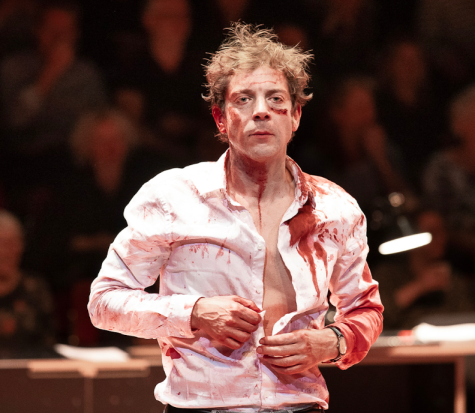
Obviously I can’t make a review about this book without dedicating a whole paragraph to its main character, Jude St. Francis, so here it is: To say the least, Jude has been through a lot. Though it may start as young as his birth, it doesn’t end until his unavoidable death. This alone should already warn you of the heaps of emotional damage jam-packed these 814 pages. Jude never gets a break. Even if his life is physically going well, memories of his past never seem to escape and continue to haunt his adulthood even when he is surrounded by people who deeply care for his well-being.
As a young adult, Jude chases a career as litigator where his moral judgment is questioned and reevaluated at every opportunity. Jude finds relief in his job, where he hyper-focuses on work when things seem to be going wrong or when he finds himself to be especially lonely. Although this may act as a respite to him mentally, it takes a massive toll on his physical body, which has already been impaired from years of his childhood spent as a victim of sexual, mental, and physical abuse. I couldn’t even begin to describe the different scenarios of these crimes, regardless of whether I was afraid of spoiling the book or not. The writing can get so gruesome and shocking at times that you begin to question what in the world made you pick up A Little Life in the first place, but that’s what also makes you want to read on. You can’t read a character’s life half-done, you want to see it all the way through.
But to backtrack, Jude’s profession as litigator might not jump out as important, but it definitely is. So let me break it down for you. A litigator is a type of lawyer. Whereas most types of lawyers may never set foot inside the courtroom their whole career, a litigator does so almost daily. Additionally, most lawyers have a far stricter rule book, whereas litigation is inherently unpredictable. As a litigator, all your civil cases are held in court, but your goal is not to “win” per say, but “settle.” Though this seemingly makes their jobs easier, the direction in which the case seems to be going is so unreliable that you have to prepare for even the wildest assumptions.
This makes life as a litigation lawyer extremely difficult, as preparation for a case may take hours. Jude, however, treats it as his sanctuary. To put this into perspective, there are many instances within the book where Jude completely submerges himself in his work because he is afraid to face the world around him. Another character comments on how “he lacked the sort of ambition that JB and Jude had, that grim, trudging, determination that kept them at the studio or office longer than anyone else, that gave them that slightly faraway look in their eyes that always made him think a fraction of them was already living in some imagined future, the contours of which were crystallized only to them.”
The character Yanagihara has created of Jude was so well-thought out, and his litigating career is like the missing puzzle piece needed to complete him. The events of his childhood have affected Jude’s present and future because he allowed them to, and although he may believe his work is a form of escape from his past, it really seems to be an extension of it. The fear Jude must’ve felt as a child, as everyday brought on a new challenge and he was constantly being forced to make the best of what he had, is also projected in his field of work that brings on a new case everyday, each harder than the last. Jude has been adapting his whole life and he doesn’t allow himself to stop. The more comfortable he feels, the harder he works, because the more he is unbelieving that he deserves this comfort. Being a litigator allows him to push himself past his limits, but this neither harms nor helps him. It’s as if Jude has been stuck in the same mindset basically his whole life.
Zara
Despite A Little Life’s tragic ending, I found myself resonating with its significance: In the pursuit of happiness, there will not always be a fortunate resolution. Hanya Yanagihara creates life through the character Jude St. Francis and his closest friends, Willem, Malcolm, and JB, as we watch them change throughout the decades.
An element that appealed to me was how Yanagihara developed such flawed,authentic, and yet fascinating characters. To start, I initially enjoyed reading about JB. However, as we gained more insight into his story and behavior, I grew bitter toward his character. His treatment toward Jude was just uncalled for – I was in utter disgust at how JB took the one thing that Jude, his dear friend, hated most about himself and used it against him. Although compelling, it seemed like his experience with drugs was merely a failed means to get the audience to sympathize with him.
On the other hand, Malcolm had potential that I feel wasn’t thoroughly explored. His talent and love for architecture was genuine, and I loved how he used that to show how much he cared for Willem and Jude. I hoped we’d get to see more of his personality rather than him simply being a side character to the others. Although Malcolm and JB are two crucial characters, I want to focus on Jude and Willem, separately as well as together:
Jude’s story in A Little Life is one that can’t be explained delicately. Yanagihara develops the character using sensitive themes such as suicide, self-harm, ptsd, drug addiction, and sexual abuse. Throughout the novel, Jude continuously rejects help from his loved ones. His past makes the rejection understandable, but also troubling to read.
Every time it seems like Jude is recovering from events in his past, something occurs and he falls deeper into anguish, ultimately leading to his suicide. Jude’s desire for pain is a manifestation of his own self-hatred – he truly believed that he deserved to be punished for simply existing, so he took action to inflict this sort of “retribution” onto himself: “There were times when the pressure to achieve happiness felt almost oppressive, as if happiness were something that everyone should and could attain, and that any sort of compromise in its pursuit was somehow your fault.” Jude’s inability to believe that he’s deserving of happiness directly relates to the guilt manifested from his trauma, and further affects him in the way that because he can’t escape his past, he turns to unhealthy coping mechanisms to find control in his present. It is unclear whether or not Jude truly seeks death. We, along with Jude’s loved ones, are kept in a constant state of uneasiness, and this reflects Jude’s own hesitancy within himself.
Willem’s character was admirable – his loyalty and compassion for Jude was touching. It’s hard to find a connection so unbreakable, and yet fragile. As their relationship progresses throughout the decades, more pieces of Jude’s story are unveiled to Willem, who simply listens. He doesn’t pressure Jude to tell him about his deep-rooted trauma, and instead waits years until Jude is assured that Willem won’t resent him for what had happened to him in the past. A section in the novel is even named ‘The Happy Years’, which I assume is Jude’s perspective on his time with Willem. The thing that I find most depressing about this detail is how this chapter isn’t necessarily a happy one but, in terms of Jude’s life experience, Willem is the one who has been there for Jude.
In spite of Jude’s thoughts about himself, Willem retains the love he has for him without hesitancy. The ending of this three chapter section is ironic in the sense that we are grasping onto this hope that there will be a happy ending, that Jude would simply recover from everything that has happened to him and Willem, Malcolm, and JB would be there to alleviate him in this; but in the most unexpected way, this fantasy is broken, and the “Happy Years” have come to an end.
Jude and Willem’s friendship was that small piece of joy in A Little Life – but I also question If Jude would have been able to survive without Willem. Yes, their relationship was genuine, and they truly did love each other, but Jude’s dependency on Willem was slightly alarming, which leads me to wonder what would happen if things had gone differently in the end. As humans, we continue throughout life because we are scared of what comes once we stop; this is the same case as Jude’s: “Everything he has learned tells him to leave; Everything he has wished for tells him to stay.” It’s challenging to go on throughout life with nothing to rely on thus Jude finds comfort in Willem and his job – these two things keep him grounded to reality, as well as from succumbing back to his memories of his past. Given the chance that everything will be okay in the end, Jude holds onto hope that he will achieve happiness as long as Willem is beside him. But when Jude’s anchor to reality is cut, everything that he has built for himself comes crashing down, and the prospect of an ideal world is given up.











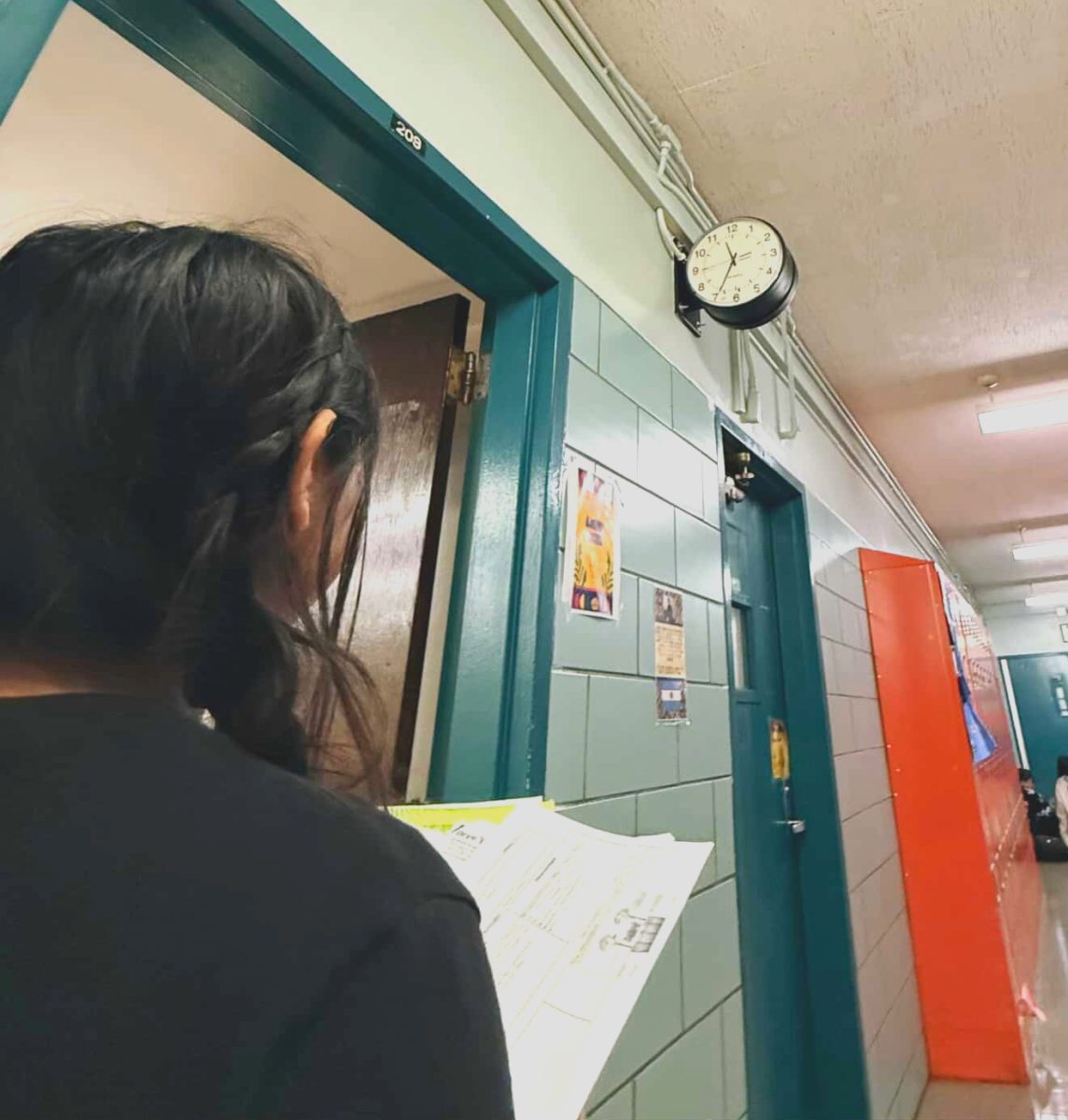
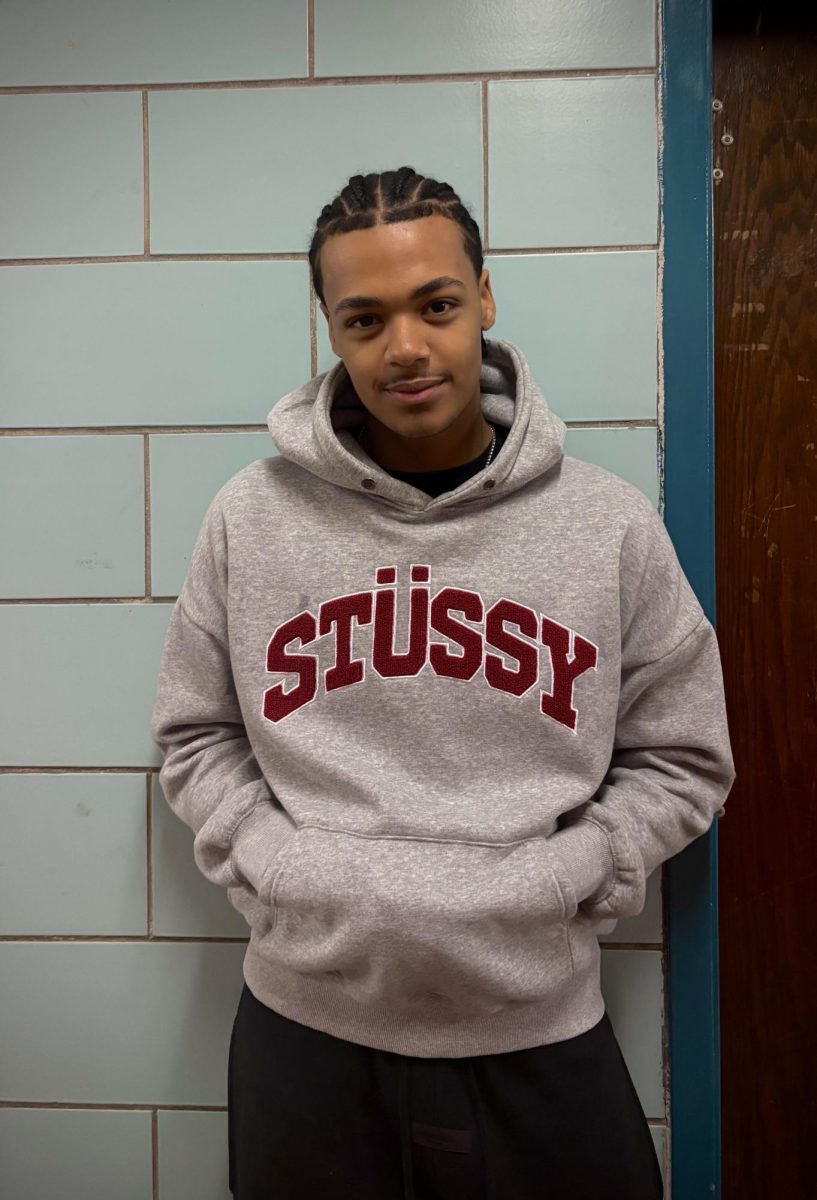
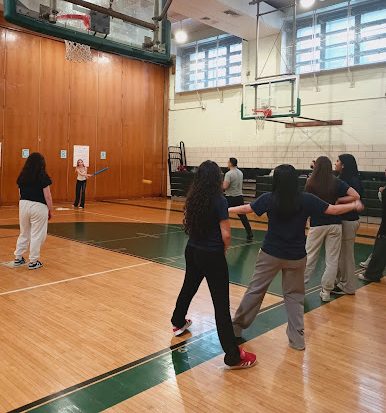












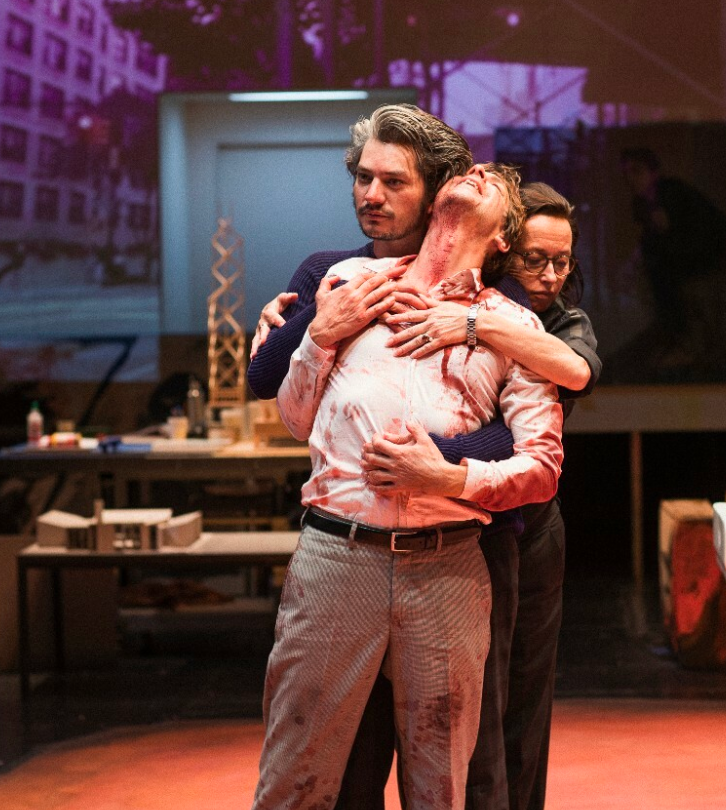
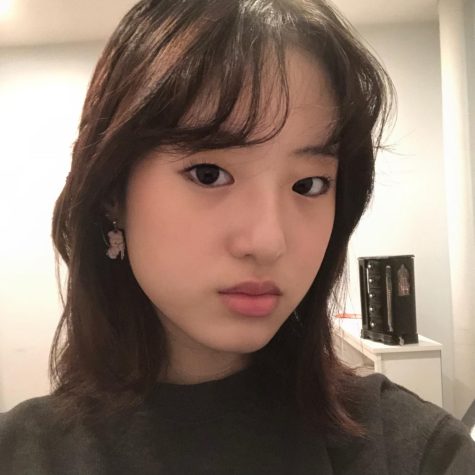
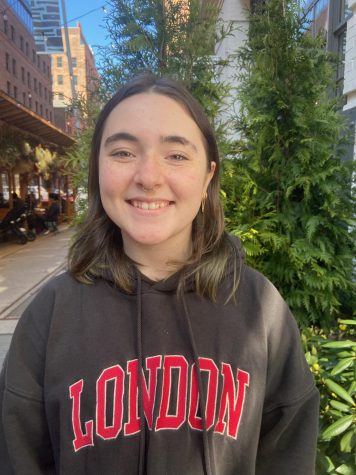
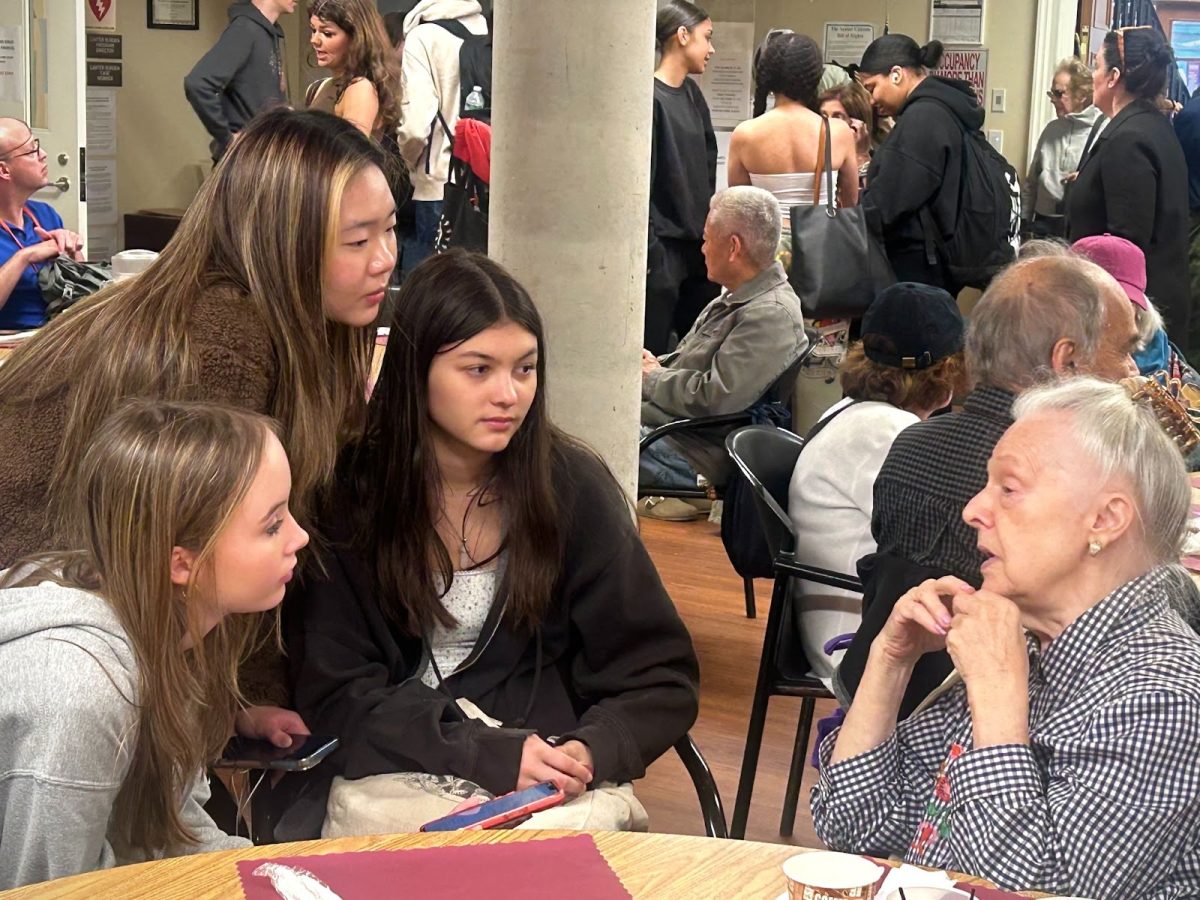
adviser • Jan 11, 2023 at 10:03 am
I hated this book – thought it was totally overrated. But I LOVED your review. Both of you gave me new insight and helped me to understand where this book might have been more complex than I originally gave it credit for. Well done!
Cafelady • Jul 24, 2023 at 4:53 am
I’m interested to know why you ‘hated’ the book? It isn’t a critique of your opinion. I’m taking a class next semester entitled ‘Gender and Trauma in contemporary fiction’ so I’m overtly interested in differing opinions and why (perhaps beyond or because of the book’s themes) a reader may be so adverse.
adviser • Aug 23, 2023 at 8:18 am
I thought it was heavy handed, and that a lot of the descriptions of violence and abuse were gratuitous.